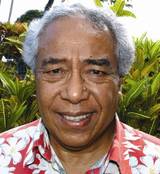
You said in your presentation to the Bose Ni Momo Trust that the legal protection of indigenous iTaukei and Rotuman rights under the 2013 Constitution is the best ever when compared to Fiji’s earlier Constitutions of 1970 and 1997 and the protection of indigenous peoples in other countries. However, why is it that many iTaukei are still confused or unsure about the security of their community?
ANSWER
I think many are confused by the mixed messages they are getting from the Government.
On the one hand, they are being told that their collective rights to their customary lands and resources, their right to administer their communities through their Provincial and Tikina Councils, and their right to safeguard and revitalize their languages, culture and customs, are all securely protected under the 2013 Constitution. But then they are also being reminded almost every day that the same Constitution does not permit the grant of special treatment to any individual or community on the grounds of ethnicity, culture or religion. The foundational pillar of all policies of the current Government is that as individual persons and common citizens of Fiji, we are all equal in our fundamental human rights and freedoms. As such, any public policy such as government scholarships or low-income housing that is based on ethnicity, religion or gender, would be inconsistent with these basic constitutional rights and could therefore be declared by the courts as invalid and unconstitutional.
I believe the challenge here is for Government to re-look at its own current strict and narrow interpretation of the term “individual equality”.
In the realities of life, specific circumstances may call for community or group specific initiatives or programmes to promote equal enjoyment of rights and opportunities. This is equality in its substantive and qualitative meaning. This was defined in a famous dissenting opinion by Judge Tanaka in the International Court of Justice advisory opinion in the South-West Africa cases (1966) as follows:
“The principle of equality before the law does not mean the absolute equality, namely, the equal treatment of men without regard to individual, concrete circumstances, but it means the relative equality, namely, the principle to treat equally what are equal and unequally what are unequal…To treat unequal matters differently according to their inequality is not only permitted but required”.
New Zealand’s Bill of Rights Act 1990, for example, states under section 19(2):
“Measures taken in good faith for the purpose of assisting or advancing persons or groups of persons disadvantaged because of colour, race, ethnic or natural origins…do not constitute discrimination”.
Fiji is a State party to the International Convention on the Elimination of All Forms of Racial Discrimination (ICERD). Article 2(2) expressly requires that:
“States Parties shall, when the circumstances so warrant, take, in the social, economic, cultural and other fields, special and concrete measures to ensure the adequate development and protection of certain racial groups or individuals belonging to them, for the purpose of guaranteeing them the full and equal enjoyment of human rights and fundamental freedoms…”.
The current approach of enforcing equality in its strict formal and absolute mathematical sense can only lead to suspicion that good faith and altruism are absent and there are underlying sinister motives.
Read Kotobalavu's full text below: BOSE NI MOMO TRUST BA PROVINCE, At Lautoka, Thursday, 10th September, 2015, ADDRESS BY JIOJI KOTOBALAVU, 2013 CONSTITUTION PROVIDES BEST EVER PROTECTION OF ITAUKEI AND ROTUMAN CUSTOMARY RIGHTS

